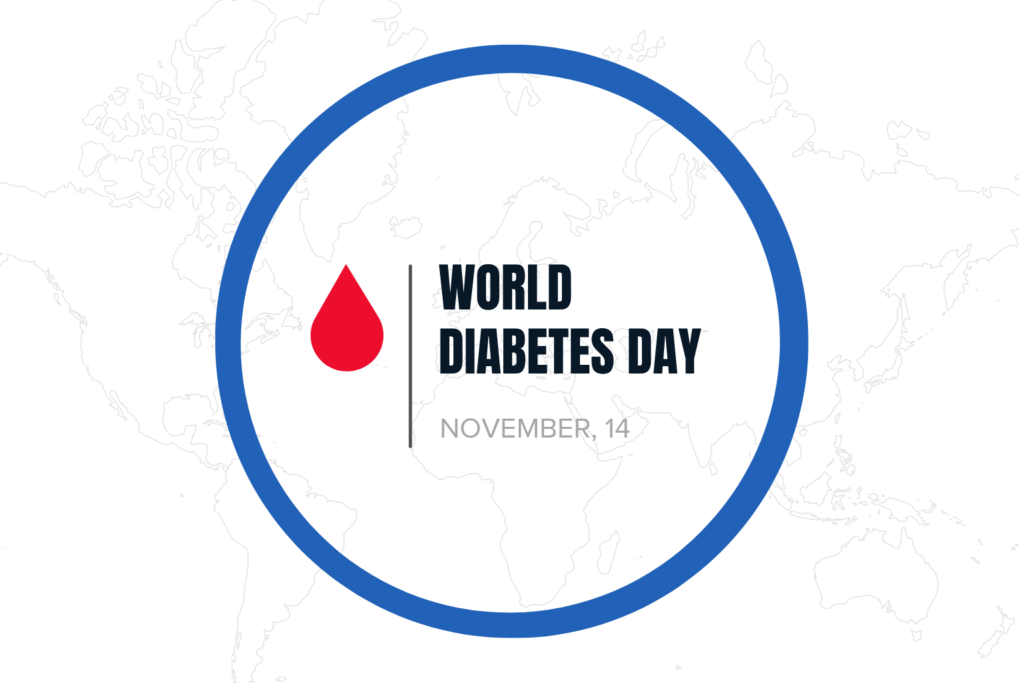14 November 2025
Every 14 November marks World Diabetes Day – a global reminder that diabetes is not a distant issue, but one that touches lives across every age and stage. The theme for 2025 — “Diabetes across life stages” — calls on us to recognise that from childhood to working years to older adulthood, diabetes prevention and care need to be woven into our everyday lives.
While genetics and other factors do play a role, what’s most empowering is this: small, consistent lifestyle changes can make a big difference when it comes to delaying onset of type 2 diabetes, keeping blood-sugar levels in check, and enhancing overall wellbeing. Here are five simple changes you can start today — and why they matter.
1. Move Your Body — Even a Little Counts
It’s a myth that only intense workouts matter. What matters more is consistency. Research shows that even a 10-minute walk after meals, especially dinner, helps your muscles absorb glucose better — preventing sharp blood-sugar spikes.
Tip: After your evening meal, take a brisk 10-minute walk. No gym? No problem. A comfortable stroll works. Over time, aim for 150 minutes of moderate activity per week as recommended by the World Health Organization.
2. Eat Smart — Focus on What You Add, Not Just What You Remove
Diet isn’t about drastic restrictions — it’s about making choices that support stable blood-sugar levels. For example, swapping refined grains with whole grains, starting with protein-rich foods, and increasing intake of flavonoid-rich fruits and vegetables have shown measurable risk reduction for diabetes.
Tip:
-
Make half your plate vegetables or salads.
-
Choose whole-grain bread over white.
-
Try berries or an apple instead of high-sugar snacks.
Small swaps lead to big gains in the long run.
3. Hydrate, Sleep and De-Stress
These three pillars often go overlooked in the world of diabetes prevention.
-
Hydration helps your kidneys and metabolic system flush toxins and process glucose effectively.
-
Sleep — Poor sleep affects hormone levels (like insulin and cortisol) and increases the risk of insulin resistance.
-
Stress — Chronic stress elevates blood sugar and triggers unhealthy habits.
Tip: Aim for 7–9 hours of sleep, drink water throughout the day, and carve 10 minutes for purpose-driven relaxation (breathing exercises, gentle stretching, or reflection).
A modest weight reduction (even 5–10 %) can significantly lower diabetes risk. The good news? It doesn’t require extreme diets — just balanced meals, regular activity, and consistent habits.
Tip: Choose one habit to work on each month — maybe lowering sugar drink intake this month; next month, add one extra vegetable to your meals. Gradual, personalised change sticks.
5. Monitor & Act — Early Detection Helps
Often, people live with elevated blood sugar levels without realising. Diabetes doesn’t always shout its presence. The theme of this year reminds us of the importance of life-stage awareness — whether you’re young, working age, or older, checking your numbers matters.
Tip:
-
Have a blood-sugar test (especially if you have family history or are overweight).
-
Know your risk: family history, ethnicity, previous gestational diabetes raise it.
-
Make follow-up a habit. Prevention works best when paired with early action.
Why These Small Steps Matter
You might ask: “Will walking 10 minutes or choosing wholegrain really make a difference?” The answer is yes — and the difference compounds.
-
Multiple studies underscore: lifestyle strategies reduce risk of type 2 diabetes by large margins.
-
Slowing even one person’s progression from pre-diabetes to diabetes means fewer complications later (like heart disease, kidney damage or vision loss).
-
When these habits become second nature, you’re building resilience — for yourself and for your community.
Taking Action Today
-
Choose one habit from above and commit for the next 30 days.
-
Share your progress — ask a friend to join you. Accountability helps.
-
Use this 14 November (World Diabetes Day) as your “launch date” — every day after is part of your wellness journey.
-
Consider tracking: a simple app, a journal, or a caller friend keeps momentum.
In Summary
On this World Diabetes Day 2025, remember: preventing diabetes isn’t a huge leap, it’s a thousand small steps. Moving more, eating smart, sleeping better, managing stress and staying aware — these changes matter now.
Because your future self will thank you for the choice you made today.


